Ngrjunas Middle Way
CLASSICS OF INDIAN BUDDHISM
The flourishing of Buddhism in South Asia during the first millennium of the Common Era produced many texts that deserve a place among the classics of world literature. Exploring the full extent of the human condition and the limits of language and reason, these texts have the power to edify and entertain a wide variety of readers. The Classics of Indian Buddhism series aims to publish widely accessible translations of important texts from the Buddhist traditions of South Asia, with special consideration given to works foundational for the Mahyna.
Editorial Board
Paul Harrison, Stanford University
Jens-Uwe Hartmann, University of Munich
Sara McClintock, Emory University
Parimal Patil, Harvard University
Andy Rotman, Smith College
Akira Sait, University of Tokyo
THE MLAMADHYAMAKAKRIK
This is a translation of Ngrjunas Mlamadhyamakakrik, the foundational text of the Madhyamaka, or middle path, school of South Asian Buddhism. In it Ngrjuna sought to philosophically articulate and defend the Mahyna teaching that all things are empty, or devoid of intrinsic nature. To achieve this end, he developed a variety of arguments on many topics. Once the background assumptions and the underlying logic are spelled out, these arguments are not as difficult to understand and evaluate as they might initially seem. This new translation also includes a running commentary on the verses, distilling information from the four extant classical Indian commentaries in order to make clear the background context and reasoning of each argument.

Wisdom Publications
199 Elm Street
Somerville, MA 02144 USA
www.wisdompubs.org
2013 Mark Siderits, Shry Katsura
All rights reserved.
No part of this book may be reproduced in any form or by any means, electronic or mechanical, including photography, recording, or by any information storage and retrieval system or technologies now known or later developed, without permission in writing from the publisher.
Library of Congress Cataloging-in-Publication Data
Ngrjuna, 2nd century.
[Madhyamakakrik. English]
Ngrjunas Middle way : the Mlamadhyamakakrik / Mark Siderits and Shry Katsura.
pages cm. (Classics of Indian Buddhism)
Includes bibliographical references and index.
ISBN 1-61429-050-4 (pbk. : alk. paper)
1. Mdhyamika (Buddhism)Early works to 1800. I. Siderits, Mark, 1946 translator, writer of added commentary. II. Katsura, Shry, 1944 translator, writer of added commentary. III. Title.
BQ2792.E5S53 2013
294.385dc23
2012047730
ISBN 978-1-61429-050-6; eBook ISBN 978-1-61429-061-2
17 16 15 14 13 5 4 3 2 1
Cover image The Trustees of the British Museum (Detail of a stone slab image depicting a five- headed nga guarding the entryway to a stpa. From the Great Stpa of Amart). Cover and interior design by Gopa&Ted2. Set in Diacritical Garamond Pro 11.75/15.75.
Wisdom Publications books are printed on acid-free paper and meet the guidelines for permanence and durability of the Production Guidelines for Book Longevity of the Council on Library Resources.
Printed in the United States of America.
 This book was produced with environmental mindfulness. We have elected to print this title on 30% PCW recycled paper. As a result, we have saved the following resources: 15 trees, 7 million BTUs of energy, 1,297 lbs. of greenhouse gases, 7,038 gallons of water, and 471 lbs. of solid waste. For more information, please visit our website, www.wisdompubs.org. This paper is also FSC certified. For more information, please visit www.fscus.org.
This book was produced with environmental mindfulness. We have elected to print this title on 30% PCW recycled paper. As a result, we have saved the following resources: 15 trees, 7 million BTUs of energy, 1,297 lbs. of greenhouse gases, 7,038 gallons of water, and 471 lbs. of solid waste. For more information, please visit our website, www.wisdompubs.org. This paper is also FSC certified. For more information, please visit www.fscus.org.
Publishers Acknowledgment
T HE PUBLISHER gratefully acknowledges the generous help of the Hershey Family Foundation in sponsoring the publication of this book.
Contents
O UR COLLABORATION had its inception in a cottage on the island of Miyajima in 1999. We had both worked independently on the Mlamadhyamakakrik for some years, having each arrived at our own tentative translations of the bulk of the work. Pooling our resources seemed like a natural step to take at the time, though we were no doubt overly optimistic about how long it would take us to complete the project. We each feel we have profited enormously from our joint enterprise, and we hope the reader will concur in our judgment.
Many individuals and institutions contributed to our project. Mark Siderits was greatly helped by the generous research support he received from BK Foundation, and research support from the Numata Foundation facilitated his stay in Kyoto in 2006. Shry Katsura wishes to thank the Japan Society for the Promotion of Science, which supported his visit to Korea in 2011 as well as Siderits short stay in Kyoto in 2012, by providing a Grant-in-Aid for Scientific Research.
We thank Paul Harrison for his comments on an early draft and for urging us to consider publishing our work with Wisdom. Graham Priest made very useful comments on a later draft. David Kittelstrom has proven an extraordinarily able editor whose sage advice and encouragement have been greatly appreciated. And we wish to thank Megan Anderson for her assiduous proofing, Laura Cunningham for her competence in guiding the book through production, and the rest of the Wisdom staff for their help in bringing our work to fruition.
T HE Mlamadhyamakakrik (MMK) by Ngrjuna (ca. 150 C.E.) is the foundational text of the Madhyamaka school of Indian Buddhist philosophy. It consists of verses constituting twenty-seven chapters. In it, Ngrjuna seeks to establish the chief tenet of Madhyamaka, that all things are empty (nya) or devoid of intrinsic nature (svabhva). The claim that all things are empty first appears in the Buddhist tradition in the early Mahyna stras known collectively as Prajparamit, beginning roughly in the first century B.C.E. Earlier Buddhist thought was built around the more specific claim that the person is empty: that there is no separately existing, enduring self, and that the person is a conceptual construction. Realization of the emptiness of the person was thought to be crucial to liberation from sasra. The earliest Mahyna texts go considerably beyond this claim, asserting that not just the person (and other aggregate entities like the chariot) but everything is devoid of intrinsic nature. While they assert that all things are empty, however, they do not defend the assertion. Ngrjunas task in MMK is to supply its philosophical defense.
As is usual in texts of this nature, the arguments are presented in highly compressed form and so are extremely difficult to comprehend without a commentary. This is due to the nature and purpose of such texts. A krik is a work in verse form that contains a concise formulation of some (often philosophical) doctrine; the kriks are the individual verses making up the work. Texts of this sort were originally used because it is easier to memorize information when it is put in verse form. The regular cadence that results when a verse is constructed out of its four feet (referred to as a, b, c, and d), each consisting of eight syllables, serves as an important mnemonic aid. On the other hand, it would be difficult to clearly formulate and fully defend a sophisticated philosophical thesis within the forms constraints. But texts of this genre were not composed with that end in mind. The original expectation seems to have been that the student would commit the verses to memory, recite them to the teacher to demonstrate mastery, and then receive an account from the teacher that fully explained the content of each verse. In time these explanations of individual teachers came to be written down in the form of prose commentaries. It is text plus commentary that together are meant to do the work of formulating and defending the philosophical thesis in question. Memorizing the verses would have given students the outline they need in order to remember the full details of the system spelled out in the commentary.
Next page
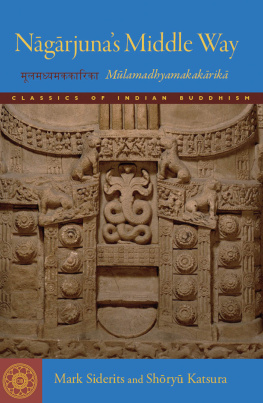

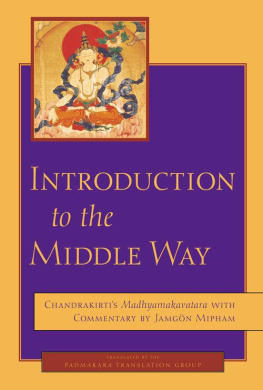
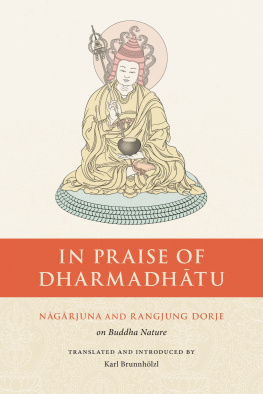
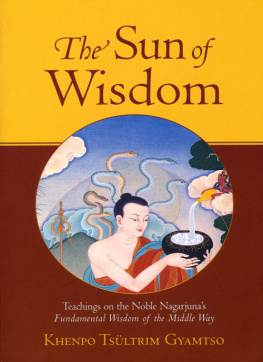
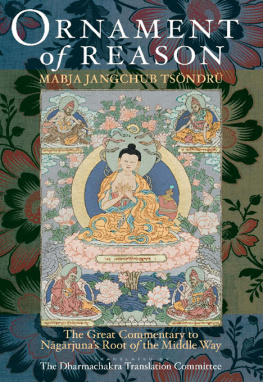
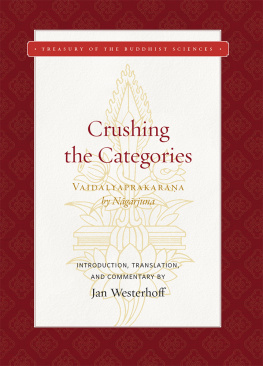
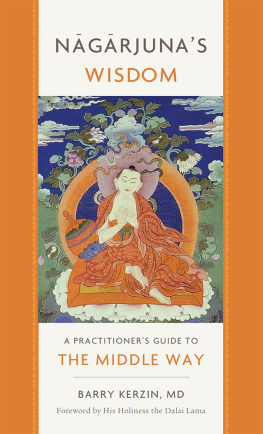
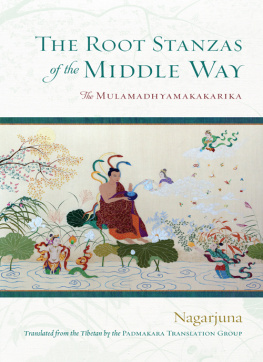
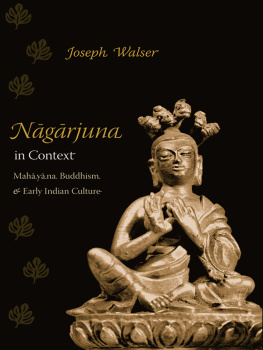

 This book was produced with environmental mindfulness. We have elected to print this title on 30% PCW recycled paper. As a result, we have saved the following resources: 15 trees, 7 million BTUs of energy, 1,297 lbs. of greenhouse gases, 7,038 gallons of water, and 471 lbs. of solid waste. For more information, please visit our website, www.wisdompubs.org. This paper is also FSC certified. For more information, please visit www.fscus.org.
This book was produced with environmental mindfulness. We have elected to print this title on 30% PCW recycled paper. As a result, we have saved the following resources: 15 trees, 7 million BTUs of energy, 1,297 lbs. of greenhouse gases, 7,038 gallons of water, and 471 lbs. of solid waste. For more information, please visit our website, www.wisdompubs.org. This paper is also FSC certified. For more information, please visit www.fscus.org.